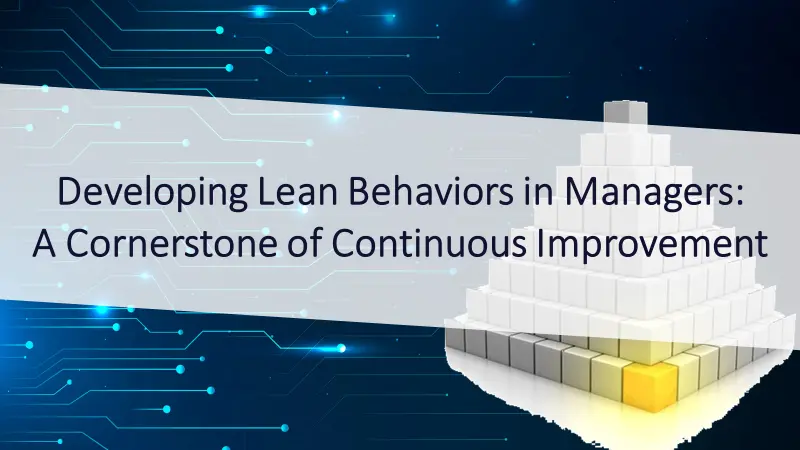In the pursuit of operational excellence and continuous improvement, organizations often invest in BPM tools and methodologies such as Lean Six Sigma (LSS) to streamline processes. However, studies conducted across various industries reveal a common challenge: while top leaders successfully implement continuous improvement tools, embedding lean principles and these behaviors in managers and teams at all levels remain a significant hurdle.
There are three critical areas to focus on to better support the Continuous Improvement Journey:
Development Plans and Observable Behaviors:
To address this challenge, forward-thinking organizations are weaving the principles of LSS into their fabric by creating targeted development plans for managers. CEOs and leaders are devising plans tied to self-rating systems that track observable behavioral dimensions. For instance, assessing whether managers are “embracing innovation” involves evaluating their openness to new ideas, experimentation, and proactive problem-solving. This approach ensures that lean behaviors become ingrained in the daily practices of managers.
Leadership Rotation for Sustained Improvement:
When we see leaders guiding daily improvement initiatives who then become occupied with unrelated tasks or leave their position, the culture of improvement begins to erode. Successful organizations showcase a different strategy – rotating the leaders of daily meetings and empowering team members to take the lead not only flattened hierarchies but also fostered open communication about challenges in delivering optimal results. This underscores the importance for organizations to devise strategies that transcend individual leaders, ensuring the sustainability of lean behaviors, even in the face of managerial changes.
Risk and challenge of Managerial Turnover:
Continuous-improvement initiatives are no different than other types, challenges and risk increase when there is managerial turnover. When managers exhibiting lean behaviors are absent, valuable information often go unshared, emphasizing the need for organizations to devise strategies that transcend individual leaders, ensuring the sustainability of lean behaviors even in the face of managerial changes.
In the journey toward operational excellence, integrating lean principles into managers’ behaviors emerges as a pivotal factor. The experiences of organizations across various industries underscore the importance of weaving Lean Six Sigma principles into leadership development plans, focusing on observable behaviors, and implementing strategies to navigate managerial turnover. By fostering a culture where lean behaviors are not only modeled by top leaders but ingrained in the daily practices of managers at all levels, organizations can truly embrace the transformative power of continuous improvement.

